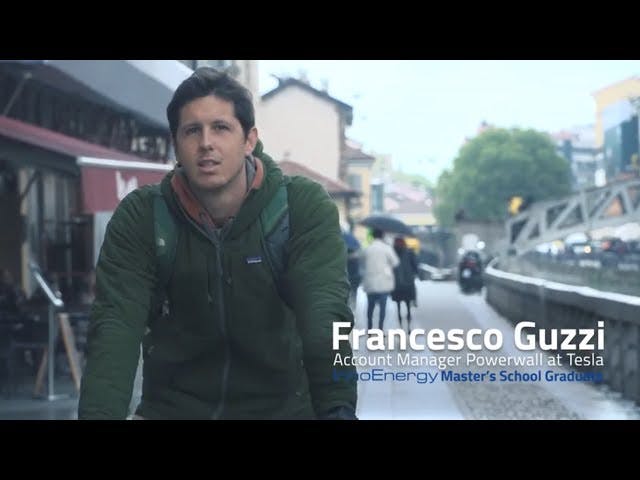The programme
The Master’s in Environomical Pathways for Sustainable Energy Systems (SELECT) is an English-taught programme where you can learn how to make a real contribution to minimising the environmental impact of current and future energy solutions.
When joining this top-ranked programme in category, Energy and Natural Resources in Western Europe (EdUniversal Best Masters Ranking 2022), students learn to address societal challenges with technical solutions in fields such as renewable energy, solar systems, biomass processing, offshore energy and more…
Innovation & Entrepreneurship Journey
The Innovation & Entrepreneurship Journey is a parallel track that you follow during your Master’s programme.
This MBA-level training includes courses and activities that provide students with tools like venture creation, investors pitching, creative thinking, tolerance for ambiguity, application of digital skills (data science, machine learning, blockchain technologies, etc) in the energy sector and more…
Career opportunities
Graduates of this programme work mainly as application engineers, business developers, consultants, design or development engineers, e-mobility solutions developers, innovation assistants, project managers and research engineers. Some of the most common employers include:


Admission requirements
Would you like to increase your chances of being admitted? Check out the programme specific requirements for the Master’s in Sustainable Energy Systems.
Contact us
Get in touch with one of our representatives who will answer your questions about our programmes, applications, student life and more:
 : +44 3331 500488
: +44 3331 500488
Or book a 1-1 meeting with our Study Advisors to get support with your application.
Want to chat with our Chinese speaking representatives? Follow us on WeChat.
EIT Label
The EIT Label is a quality seal awarded by the European Institute of Innovation and Technology (EIT) to a KIC educational programme that has been assessed positively by the EIT on the implementation of the EIT Quality Assurance and Learning Enhancement (EIT QALE) system and the application of specific quality criteria with focus on the EIT Overarching Learning Outcomes (EIT OLOs), robust entrepreneurship education, highly integrated, innovative ‘learning-by-doing’ curricula, international mobility and outreach. For more information please check here.




 :
:  :
: